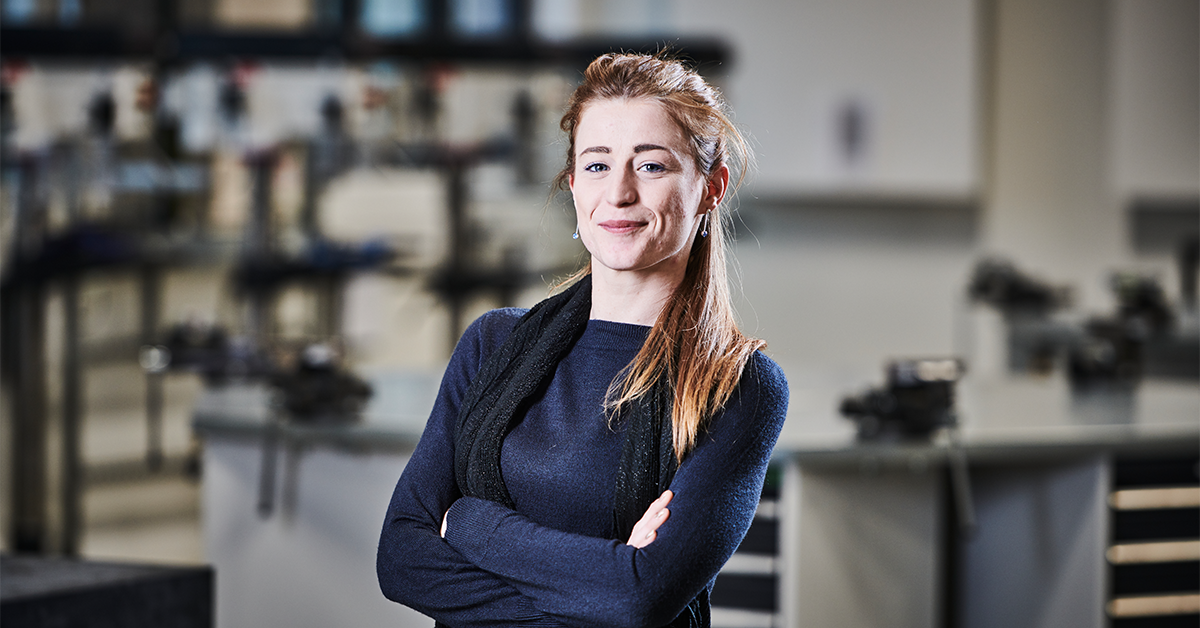Meet the Trainer – Louise Davies

A Coded Welder by trade, Louise worked in shipyards and oil and gas plants before moving into the training sector to pass her skills on to the next generation. We talked to her about continuing her own mentor’s legacy, what sets OAS apprentices apart from other learners, and how she helped build a sports wheelchair for the captain of the Welsh Wheelchair Rugby 7s!
What was your prior industrial experience before you joined OAS?
I was a Coded Welder, working mainly in the shipbuilding and repair, and oil and gas sectors, including working on the Queen Elizabeth aircraft carrier! I’ve gained a huge range of skills along the way, from pipefitting and sheet metalwork, to instrumental pipefitting and fabrication. I absolutely love every aspect of the jobs and trade that I come from.
What would you say are your career highlights?
Being part of the aircraft carrier build was an amazing experience in itself, but I was also the only female welder in the shipyard – I’m really proud about both of those things! One of the stand out oil and gas projects I worked on was welding the track for the cutter to take the top off a crude oil cracker head. It’s an absolutely enormous piece of equipment, and the project needed one of the biggest cranes in the world! I was working 12 hour night shifts, 240ft above the ground in wind, snow and ice on a 222 tonne lift – I’ll never forget it!
I’m also really proud to have led a project in partnership with the college where I took my first training role, in which we built a sports wheelchair for the captain of the Welsh Wheelchair Rugby 7s team. We went from design to build in a matter of weeks, and the Mayor of Liverpool even paid us a visit to see what we were up to. I was delighted to share a fantastic opportunity with the college students I was teaching, and some of them were inspired to pursue engineering apprenticeships and jobs as a result of their experience. From my own perspective, it was very rewarding to use all of the skills I’d gathered throughout my career on one project whilst also helping the learners to gain new skills and careers of their own.
Why did you decide to become a trainer?
I was a contractor when I was working in oil and gas, so I’d work really intensively for three months and then have a break before the project started. During these breaks, I used to return to the college where I’d trained to see the people who helped to inspire my passion in the first place, as well as doing some volunteering to support their work. Very sadly, the welding teacher who was my mentor and taught me everything right at the beginning of my career was taken ill and passed away unexpectedly. I was offered his position and it felt like an opportunity to continue his legacy – he would be so proud that I’m now passing on his skills to the next generation. He was a wonderful educator, and taught me so much about how to be a great teacher as well as a great engineer, so it’s his example that I’m always aspiring to.
What do you enjoy most about your training role?
It’s really important for me to pass on all my skills to our learners – they’re the next generation of manufacturing and the future of the sector depends on them. Some of these skills are at risk of disappearing if we don’t pass them on, and they also give our apprentices a fantastic platform of understanding what they’re doing and why they’re doing it, which really boosts their application and future development. I’m very lucky to have trained under some of the best tradespeople I know of in the industry, and so really it’s my duty to share this experience!
How is OAS different from other training centres?
Without hesitation, it’s the calibre of our learners. They’re so dynamic, and so eager to learn – they’re amazing and a total pleasure to teach! The structure of our programme also has many benefits – in the first year, we teach a really broad range of subjects so that every apprentice leaves the training centre with a strong foundation on which to build their engineering careers.
What makes a good apprentice? What qualities do apprentices need to make the most of their opportunities here?
No matter what career or pathway you choose, it’s so important that you enjoy it. If you’ve got interest and passion, there will be an engineering role that suits you because it’s such a broad and ever-changing subject.
It’s also key to understand that every aspect of engineering requires good communication and strong team working skills. These skills are vital to any apprentice who wants to make the most of their time here. And they aren’t just essential for everyday learning – they’ll help you to make the most of other opportunities that come up throughout your career and beyond.
What advice would you give to prospective apprentices?
It’s really important to appreciate that you are a representative of your employer whilst you are an apprentice at OAS. When you’re applying for your apprenticeship, make sure you research your prospective employers and really get a strong understanding of their goals, current projects and opportunities that they may have available both within and beyond your apprenticeship, so that you choose an employer who you really want to work for and who matches your dreams and ambitions.